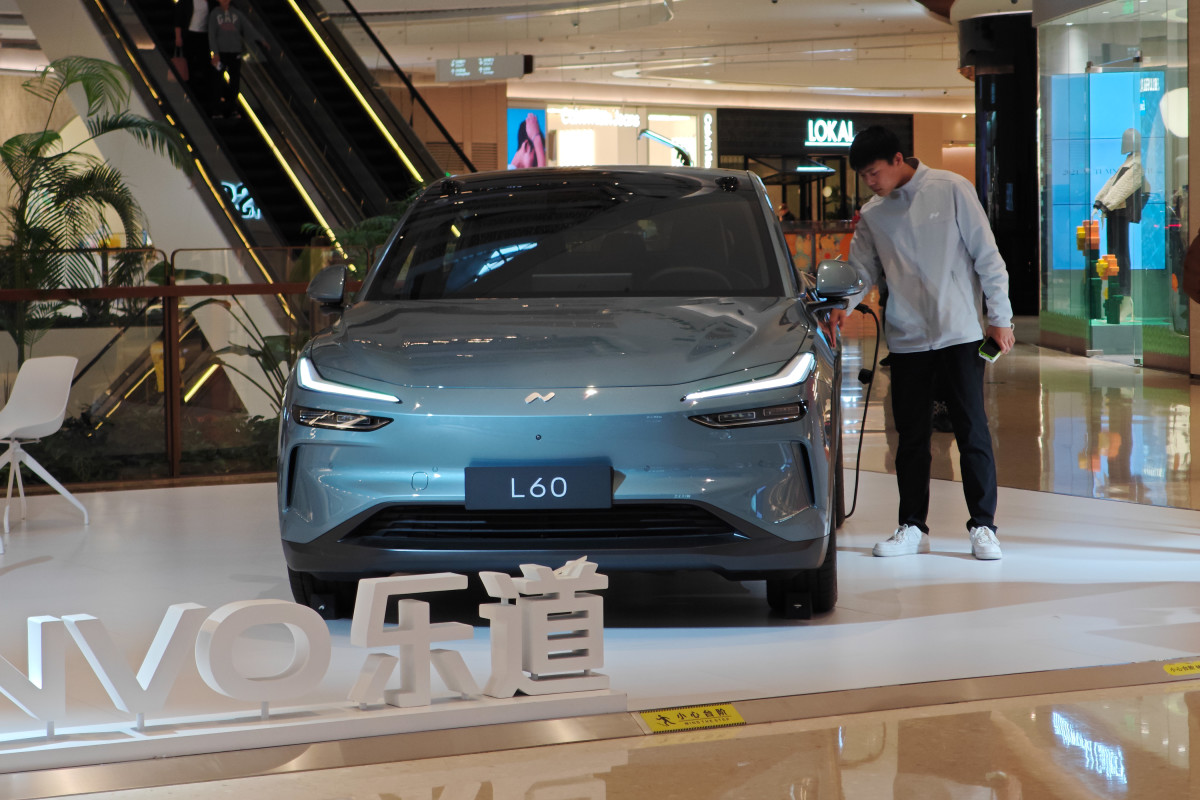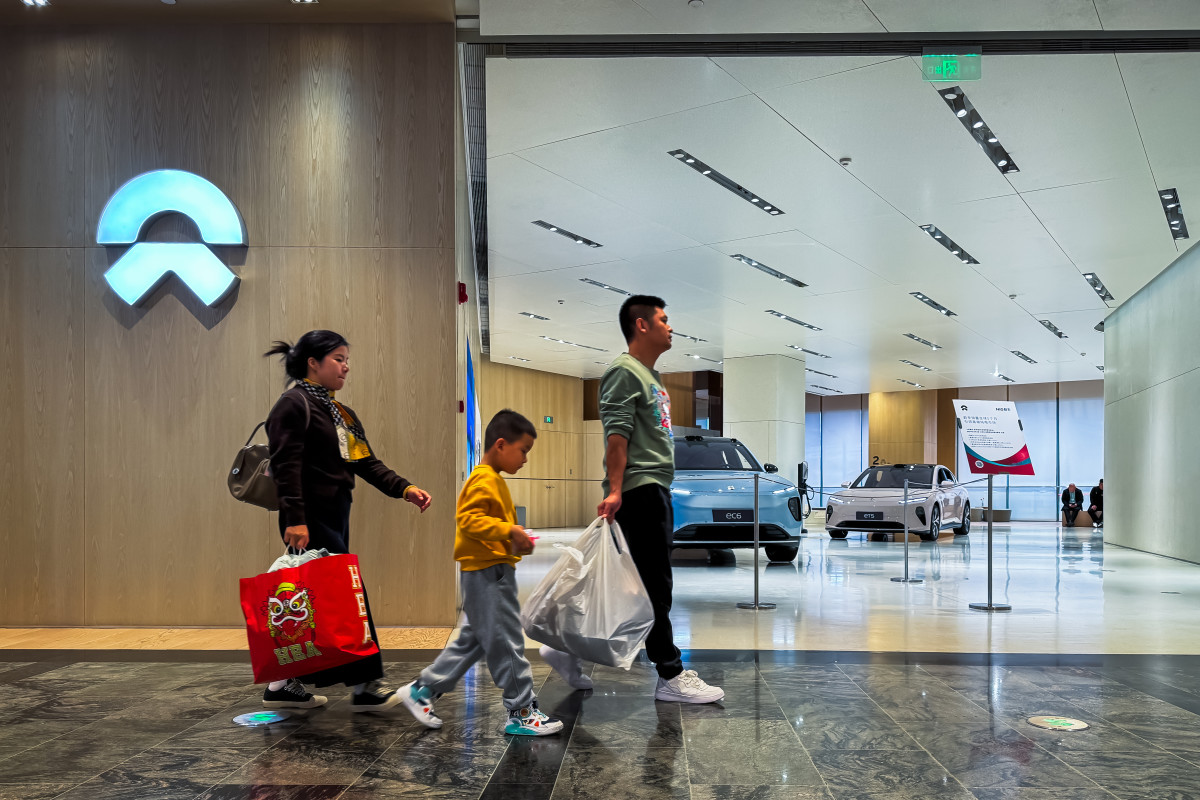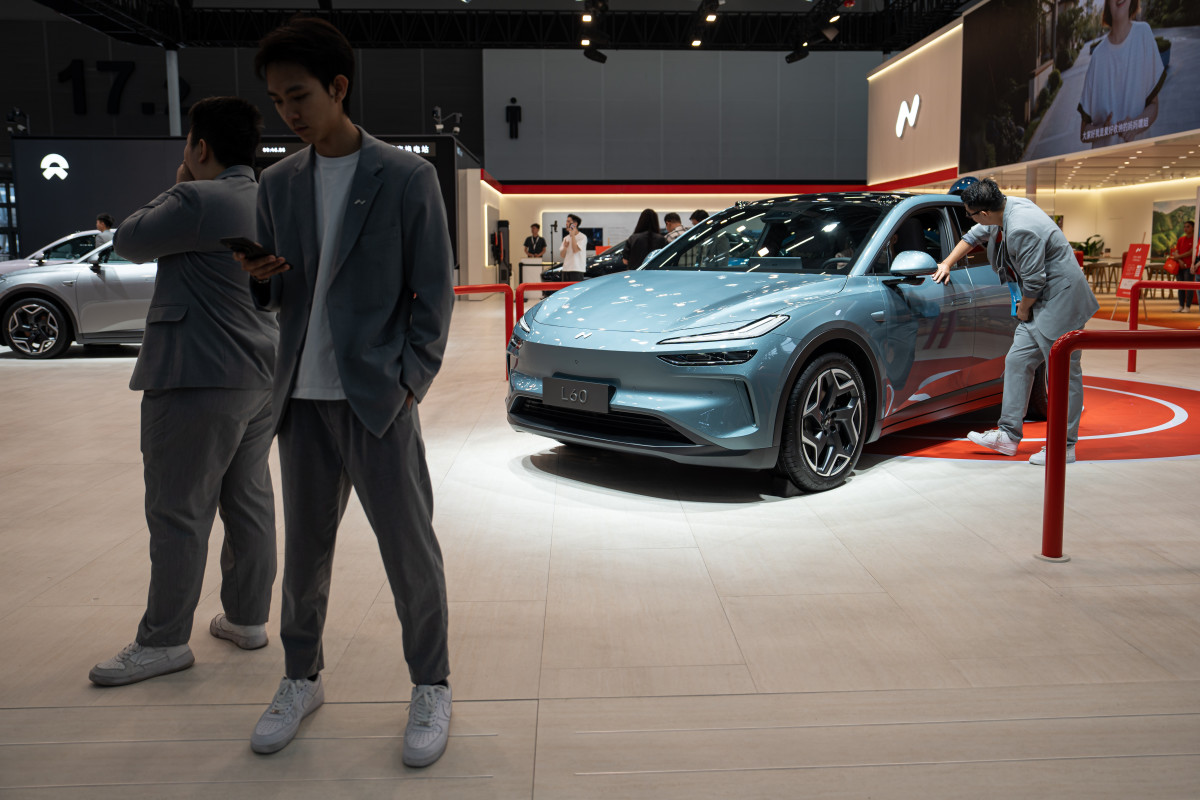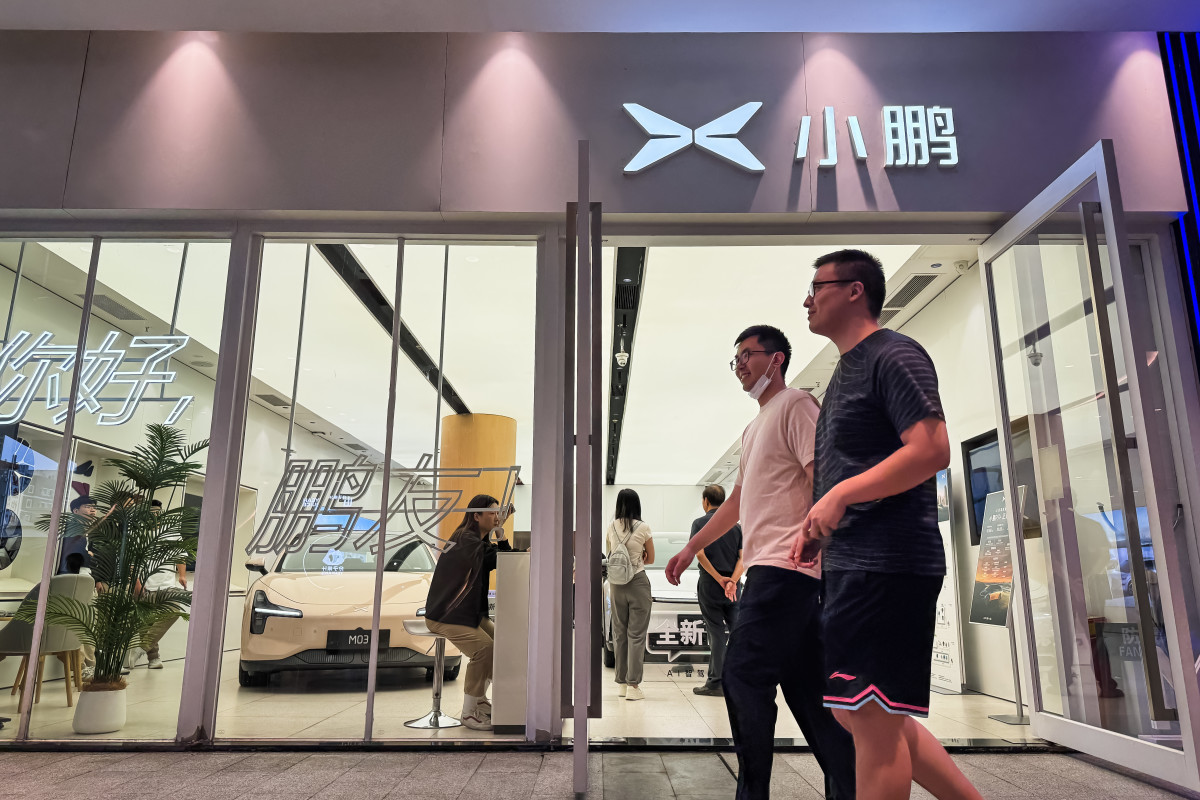
It's another week, and while the world is freaking out about Elon Musk and the likely benefits of being President-elect Trump's 'Buddy-in-chief,' analysts have been focused on two of Tesla's biggest competitors in its most competitive market: China.
Additionally, Bank of America analysts provide a view into new developments at Ford.
🚨Don’t Miss this amazing Black Friday Move! Get 60% off TheStreet Pro. Act now before it’s gone. 😲

A nutty mistake at NIO
On Wednesday, November 20, Tesla rival NIO (NIO) released its earnings for Q3 2024. It reported more comprehensive losses for the quarter, with improved vehicle margins and gross margins.
Total revenue at the Chinese EV firm is at $2.66 billion, down 2% from the same period a year ago, while its operating loss increased 8.1% from the second quarter, from $716.8 million to $746.4 million. It also reported a net loss of $721 million, an increase of 11% from the same quarter in 2023.
Despite all of this, NIO founder and CEO William Li remained optimistic. In a statement, he pointed out that NIO had “firmly secured the top position in China’s BEV market for vehicles priced over RMB 300,000 (~$41,400)" and pointed out the sales performance of its newly introduced, value-oriented Tesla-slayer, the Onvo L60.

"In the third quarter of 2024, we achieved a record-breaking delivery of 61,855 smart electric vehicles. NIO brand has firmly secured the top position in China’s BEV market for vehicles priced over RMB 300,000, holding more than a 40% market share in the first three quarters of this year," Li stated.
"Deliveries of the Onvo L60 have also commenced, with production capacity set to rapidly expand in the next few months. The Company’s total delivery volume for the fourth quarter is expected to reach a new record," he said.
However, Macquarie analysts are worried about the viability of the Onvo brand. In a note published on November 20, Macquarie analyst Eugene Hsiao downgraded NIO shares from an “Outperform” rating to “Neutral,” and also lowered its price target from $6.60 to $4.80.
💰💸 Don’t miss the move: SIGN UP for TheStreet’s FREE Daily newsletter 💰💸
Hsiao points out that Onvo's customers in its native Chinese market — the only country it currently sells in, will be significantly affected by the conclusion of some EV subsidies, which are set to expire at the end of the year.
While Chinese buyers rush to secure delivery of their new cars before the calendar turns to 2025, NIO's ONVO brand has been caught up in the rush, as delivery delays have push many buyers to revise their vehicles after the deadline and after when they can cash in on their incentives.
“We are concerned about comments that 50-60% of Onvo orders were affected by the expiration of local purchase subsidies by end-2024,” Hsiao wrote.
Related: Analysts praise groundbreaking Tesla rival, preview robotaxi event
During NIO's earnings call, CEO Li acknowledged that many ONVO customers were cancelling their orders due to late deliveries, which would lead EV buyers to miss out on financial incentives and discounts.
"We also understand that on the subsidy side, by the end of this year, some local subsidies and also the national trading subsidy will become. In that case, for some users who placed orders later may not have their cars picked up by the end of this year, and that will affect their subsidy. In that case, we have also looked at the users who eventually turned us off or turned a ton, and 50% to 60% of those users eventually rejected us was because of the late delivery and the failure of not getting the subsidy by the end of this year," Li said during the call.
Li expressed regret, as he recognized that the customer base that were attracted to ONVO were value-driven buyers whose purchase of an EV meant something significant.
"It’s also understandable [that], after all, Onvo product is around 200,000-something [yuan] and 10,000 or 20,000 subsidy can be a significant amount to them. For ET9 and the Firefly, in general, they also have their own ramp-up pace and the preparation. But for these two products, we will prepare the launch stores more actively," he admitted.

Improvements at XPeng
On the flip side, things seem much better at Chinese automaker XPeng (XPEV) , which reported positive growth, record revenue, and gross margin during a quarter of strong sales.
XPeng's Q3 2024 gross margins of 15.3% reflect a major improvement from the same time last year, when they posted -2.7% margins. Additionally, they expect fourth-quarter deliveries to range between 87,000 and 91,000 units, reflecting a YoY increase of about 44.6% to 51.3%.
In a statement, XPeng CEO Xiaopeng He attributed this positive growth to new developments in its business, including the launch of its Tesla Model 3-rivalling MONA M03.
"Our core competencies and execution capabilities have been significantly transformed. The successful launch of M03 and P7+ marks the beginning of a strong growth cycle underpinned by our major product cycles," He said.
Despite the positivity, Analysts are skeptical about XPeng and have adjusted their outlooks to reflect it.
In a note published on November 21, Goldman Sachs analyst Tina Hou downgraded XPeng stock from a "Buy" rating to a "Neutral" rating but increased its price target from $11.70 to $12.50. Despite forecasting robust volume growth of 81% in 2025, Hou also expects the competition to ramp up in the first quarter of 2025, where aggressive price cuts are the name of the game.
Additionally, Bernstein analyst Eunice Lee maintained a "Hold" rating on XPeng stock, citing its volume growth resulting in a decline in its average selling price, raising concerns about its margins' sustainability.
More Business of EVs:
- Bentley's first foray into EVs will debut in 2026
- Trump’s EPA pick Lee Zeldin is the EV industry’s worst nightmare
- Toyota exec slams "impossible" EV mandate amidst political chaos
Ford's post-Election pathway
In a note published on November 3, before the Election, Wedbush analyst and Tesla bull Dan Ives predicted that a Trump presidency would be "an overall negative for the EV industry," noting that current EV subsidies, like the tax credits associated with the Inflation Reduction Act, would be taken away once he steps foot into the Oval Office.
As a result of this prediction, he wrote on November 14 that "while [Trump's anticipated EV Tax Credit removal] is a clear negative for the EV industry at first look and would particularly hurt GM, Ford, Stellantis, and Rivian...on the flip side we view this as a net bullish move for Tesla and Musk over time. "
Though Ives sees Ford and other Detroit rivals being affected by yet-to-happen moves, Bank of America analysts, including John Murphy, note that recent developments from Ford (F) might help them in the long run.

Following a meeting in New York City with Ford Vice Chairman & CFO John Lawler and VP of Finance and incoming CFO Sherry House, Bank of America noted that Ford's current woes with quality and inventory shouldn't be a damper, as it anticipated potenitial losses due to Trump policy.
They noted that although the brand is still following through with its EVs, especially the hyped "Skunk Works" EVs, it is ready with other products to supplement them.
"Ford doesn't currently plan to change its product strategy as there is still uncertainty on how things will play out from a policy standpoint, but it is prepared to pivot given its flexibility across powertrains," Murphy wrote.
"[...] the company has a healthy pipeline of hybrid vehicles as well as traditional ICE vehicles to supplement the EV offerings."
Additionally, the analysts noted that newfound inventory concerns will result in cuts affecting Ford factory workers. They note that "current inventory buildup" is the reason for production adjustments that are expected to happen in early 2025.
Here, workers at its Michigan Assembly plant, which makes the Bronco off-roader and Ranger pickup will be subject to "2 weeks of downtime," while Kentucky Truck plant workers will face downtime to prepare for 2025 model year Ford Expedition and Lincoln Navigators.
Related: Veteran fund manager sees world of pain coming for stocks







